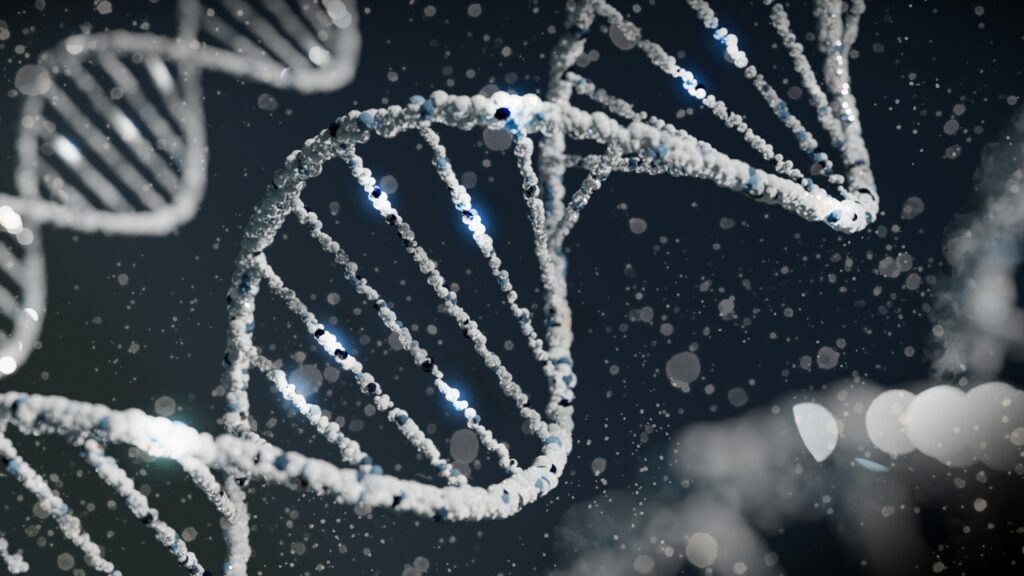Fibroids are muscular uterine tumors that are almost always non-cancerous. A common problem during your reproductive years, up to 70% of women will develop them in their lives. Yet, while they're common in all groups, Black women develop fibroids more frequently than white women. And they also seem to develop more severe symptoms, and receive their diagnoses at earlier ages. As of now, science hasn't pinpointed the exact reasons why fibroids develop. But many wonder if there's a fibroids genetic component? Below, we shed some light on this question.

The more we learn about what causes fibroids, the more we know that there is a link between risk and certain genetic mutations. In fact, one American Journal of Human Genetics study found that variants in the FASN gene (which leads to more FAS (fatty acid synthase) protein production), could be linked to fibroid risk.
But how did they reach that conclusion? FAS protein levels were three times higher in fibroid tissue than in normal uterine tissue. Still, this discovery was not unique to fibroids genetics sampling. In fact, higher FAS protein levels can be found in other tumors as well, so we can't use this evidence to conclude that fiboids are genetic. So…
Anecdotal evidence reveals that fibroids do seem to run in families. So, if your sister, mom, aunt or grandma had these uterine tumors, you're more likely to develop them than a friend without a family history of fibroids. And yet, your genes and family history don't paint the full picture of your risk factors for fibroids.
Hormone levels, especially progesterone and estrogen, increase your fibroid risk when they become elevated. Obesity can also increase your fibroid risk, possibly because fat cells contain higher levels of estrogen than other cells. Also, environmental factors, including exposure to air pollution or the kind of hormone-disrupting chemicals found in certain hair products, also increase fibroid risk. So, while you can’t do much about the fibroid risk factors you've inherited, you may be able to reduce your chances of developing these tumors by balancing hormones, reducing exposure to chemicals, and reaching an ideal weight via a healthy diet and regular exercise.
While fibroids genetic component certainly influences your risk level, you can take some control of your health. As we mentioned earlier, focusing on a healthy lifestyle can reduce your fibroid risk while providing additional benefits. For personalized guidance, consult with our Fibroid Doctors in Dallas who can help you create a plan tailored to your needs.

Our Locations
Monday - Friday
8am - 5pm
Dallas
3920 W Wheatland Rd,
Suite 108,
Dallas, TX 75237
Plano
5425 W. Spring Creek Parkway,
Suite 100
Plano, TX 75024
Scheduling
Please contact our dedicated specialists to schedule a consultation today.
2025 Dallas Fibroid Center. All rights reserved. Website Design by Healthcare Success